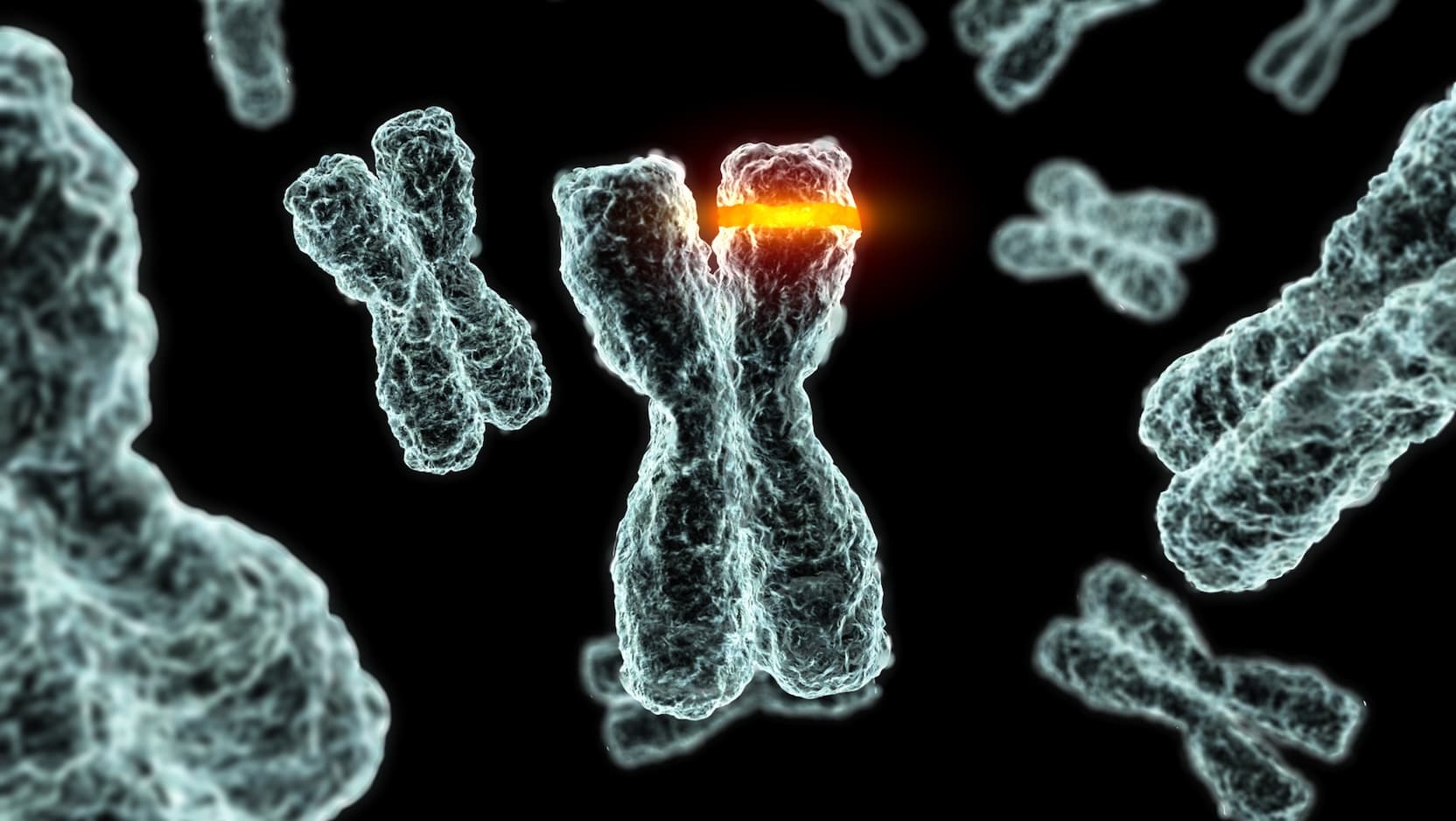Chromosomal abnormality scores unlock path to personalized immunotherapy

In a newly published article in Nature Genetics, researchers from the University of Chicago have identified tumor aneuploidy – an imbalance in the number of chromosomes – as a powerful biomarker associated with resistance to immunotherapy across cancer types. The study emphasizes how combining immunotherapy with radiation may help overcome the issue of therapy resistance, offering a new framework for predicting treatment response and personalizing cancer therapy.
The current study expands upon previous studies that identified chromosomal abnormalities — specifically tumor aneuploidy —as a key biomarker for predicting response.
Aneuploidy in immunotherapy resistance
Immunotherapy has transformed cancer care but remains ineffective in 80-90% of patients across many cancer types, pressing the need to refine patient selection and improve therapeutic strategies. Interestingly, both animal and clinical studies have shown promising outcomes when immunotherapy is combined with radiation therapy, prompting questions about what makes the patients respond differently to treatments.
“By analyzing blood and tissue samples from patients, we figured out how each treatment — radiation, immunotherapy, or both — impacts the cancer and the immune system,” said Sean Pitroda, MD, Associate Professor of Radiation and Cellular Oncology at UChicago Medicine.
In this study, Pitroda and his team explored how chromosomal abnormalities contribute to immune evasion and resistance to immunotherapy. They showed that radiation therapy used in combination with immune checkpoint blockade (ICB) may overcome resistance driven by high aneuploidy.
The power of combination therapy
In 2022, Pitroda and colleagues published a translational study in Nature Cancer based on retrospective analyses of non-small cell lung cancer (NSCLC) patients treated with various combination treatments. These studies revealed that tumors with high aneuploidy were less responsive to immunotherapy, but when radiation, specifically stereotactic ablative radiotherapy (SABR), was added, the outcomes were significantly improved.
“Now that we identified a link between high levels of aneuploidy and poor response to immunotherapy, we wanted to explore how this could inform better clinical decision-making,” Pitroda said.
One theory is that radiation might be improving the immunotherapy effects by reprogramming the tumor microenvironment, potentially eliminating immunosuppressive cells, and allowing immune cells to enter the tumor.
“It is possible that radiation is working through unmasking the tumor to the immune system by releasing damage-associated molecular patterns and other immune-stimulating signals,” said Pitroda. “It’s a complex mechanism that we don’t fully understand yet.”
Although the current recommendations are based on NSCLC, emerging studies suggest that tumor aneuploidy impacts immunotherapy response in melanoma, gastrointestinal cancers, renal cell carcinoma, and other cancers, potentially making it a broadly useful biomarker across all cancer types.
Aneuploidy as a new clinical tool
To translate these findings into clinical practice, the researchers proposed using aneuploidy scores to predict treatment response and determine which patients may benefit from the addition of radiation to immunotherapy.
The study also outlines the use of advanced tools, including next-generation sequencing platforms and copy number alteration metrics to quantify aneuploidy scores. The authors propose the integration of aneuploidy scores into routine clinical testing along with existing biomarkers like tumor mutational burden (TMB) and PD-L1 expression to better select patients and guide treatment plans. More importantly, the study identifies that aneuploidy and TMB are independent and complementary to each other, particularly in patients who have low TMB.
“We propose multiple approaches not only to quantify aneuploidy, but also to leverage this information to inform clinical decision-making,” Pitroda said. “This approach can inform the design of immunotherapy trials by improving patient classification and guiding treatment selection, especially in the context of rapidly evolving therapeutic options.”
With aneuploidy scores proving highly predictive, Pitroda’s team is now working to integrate this biomarker into clinical genomic sequencing platforms that can support precision oncology efforts.
“There are many researchers developing therapies that specifically target aneuploidy; however, it’s challenging because not all tumors share the same types of chromosomal alterations,” Pitroda said. “We might be able to develop drugs for certain tumors where the aneuploidy is more predictable.”
The study emphasizes that tumor aneuploidy is a powerful, prognostic, and predictive clinical tool for selecting patients most likely to benefit from immunotherapy.
Additional authors in this article, “Tumor aneuploidy as a prognostic and predictive biomarker in immune checkpoint blockade” included Daniel Huang, Liam Spurr, and Ralph Weichselbaum from the University of Chicago.
Funding came from the Ludwig Cancer Research Foundation, the LUNGevity Foundation, the American Lung Association, and the University of Chicago Cancer Research Foundation.

Sean P. Pitroda, MD
Sean P. Pitroda, MD, is an Assistant Professor of Radiation and Cellular Oncology at UChicago Medicine.
Learn more about Dr. Pitroda